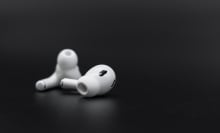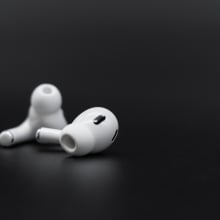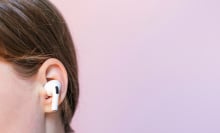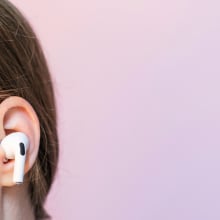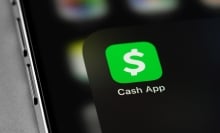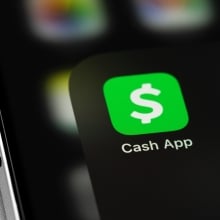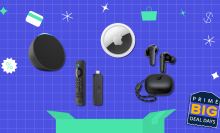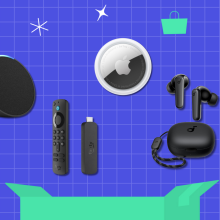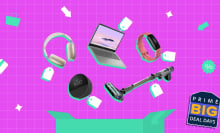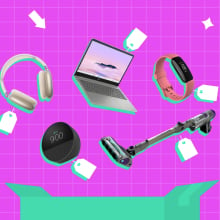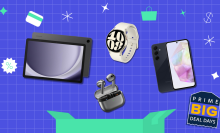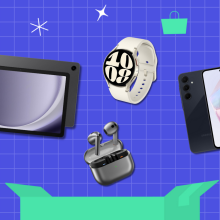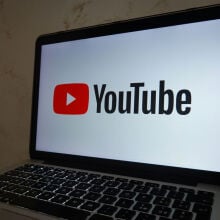People in treatment for major depression now have another recovery option to try.
Rejoyn, the first-ever app cleared by the Food and Drug Administration to help treat depression, officially launched to the public on Tuesday.
Rejoyn isn't a form of digital talk therapy or an expansive library of exercises in cognitive behavioral therapy, a type of treatment that helps people reframe negative thoughts and beliefs.
Instead, the app's parent company, Otsuka Precision Health, likens Rejoyn to physical therapy for the brain. The app offers a six-week program that challenges patients to recognize and remember four specific emotions, like happiness and disgust, they see on a series of photos of faces, then determine whether they match the emotion on the face in front of them.
Formally known as the emotional faces memory task (EMFT), the activity is thought to help patients strengthen neural connections between the brain's prefrontal cortex, which manages executive functioning, and the amygdala, which processes emotions.
As users improve their face-matching ability, they move onto more difficult face-matching scenarios.

"EMFT is designed to really enhance circuits that have been shown to be not optimally functioning in depression," Dr. John Kraus, Otsuka Pharmaceutical's chief medical officer, told Mashable. Rejoyn also includes brief lessons in cognitive behavioral therapy.
Though Rejoyn is now available in the App Store and Google Play, only patients with diagnosed major depression who are currently on antidepressant medication are eligible for a prescription for the app. Patients must also be at least 22 years old.
Rejoyn is considered low risk by the FDA. Kraus said that the company didn't detect any adverse events during its clinical trial, but like with any treatment for depression, patients should consult their health care provider if their symptoms don't improve, or if they experience suicidal feelings or behavior.
Rejoyn was tested against another memory task involving shapes instead of faces. Those who matched faces saw improvement in their depression symptoms compared to those who worked with shapes. Rejoyn, however, has not been tested against proven computer-based treatments for depression, like cognitive behavioral therapy, which are often free.
Initially, Rejoyn will cost $50 for individual patients paying cash. For insurers, the price is $200. Otsuka Precision Health expects insurance carriers to eventually add coverage for the app. Patients can receive a prescription from their healthcare provider.
They can also request a virtual consult through the telehealth provider group Wheel Health, Inc., via Rejoyn's website. The consult, which costs $29, will assess whether Rejoyn is appropriate the patient. Upon receiving a prescription, they receive a unique code to access the app's treatment program.
When the six-week treatment period ends, patients can access the cognitive behavioral therapy lessons for another four weeks. After that point, they're no longer able to use the app. Kraus said patients could potentially receive a new prescription in the future, if recommended by their health care provider.
While Rejoyn doesn't emphasize achievement, it does require consistent and sustained attention. Each matching task takes 20 to 30 minutes. Users can pause their progress if they need to momentarily step away, but the session will reset after 15 minutes.
Given the cost and timeframe, patients may want to consider whether the app is best-suited for their needs, compared to other apps or treatment options, said Dr. John Torous, a psychiatrist and director of the digital psychiatry division at Beth Israel Deaconess Medical Center in Boston.
He noted that most people stop engaging with mental health apps within weeks of starting to use them, so patients may benefit more when they choose an app they believe they'll stick with from the outset.
Torous said patients are most likely to experience progress when they're using an app as part of their ongoing treatment with a mental health provider.
"Pure self-help is hard, but at least having your clinician check in...[and] keeping you accountable is going to be very important for making it work," Torous said.
If you're feeling suicidal or experiencing a mental health crisis, please talk to somebody. You can reach the 988 Suicide and Crisis Lifeline at 988; the Trans Lifeline at 877-565-8860; or the Trevor Project at 866-488-7386. Text "START" to Crisis Text Line at 741-741. Contact the NAMI HelpLine at 1-800-950-NAMI, Monday through Friday from 10:00 a.m. – 10:00 p.m. ET, or email [email protected]. If you don't like the phone, consider using the 988 Suicide and Crisis Lifeline Chat at crisischat.org. Here is a list of international resources.
Topics Apps & Software Social Good


